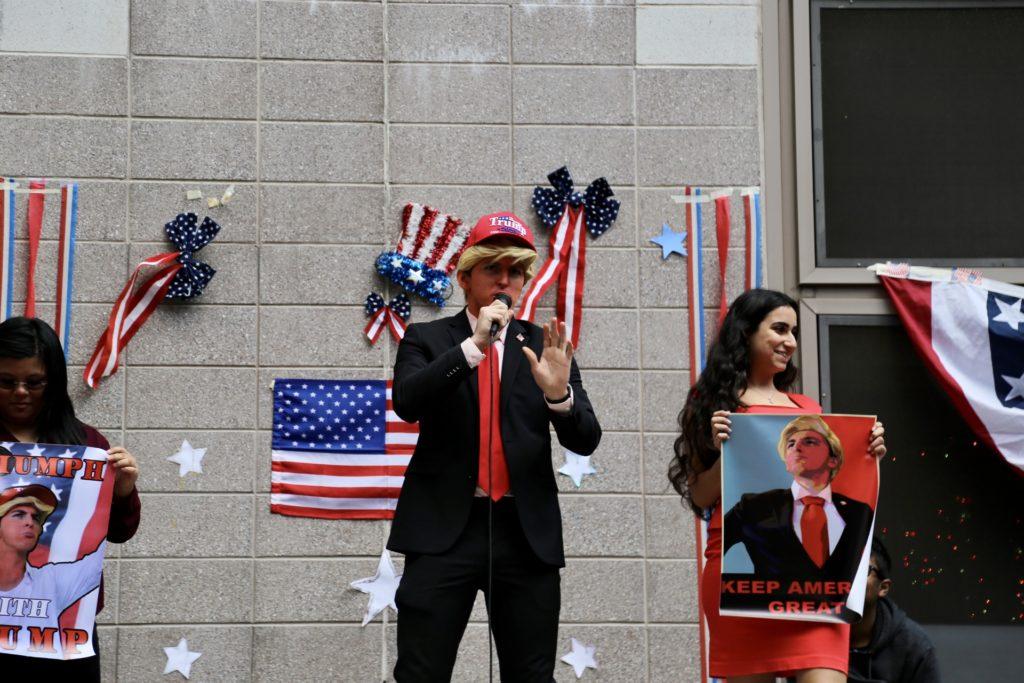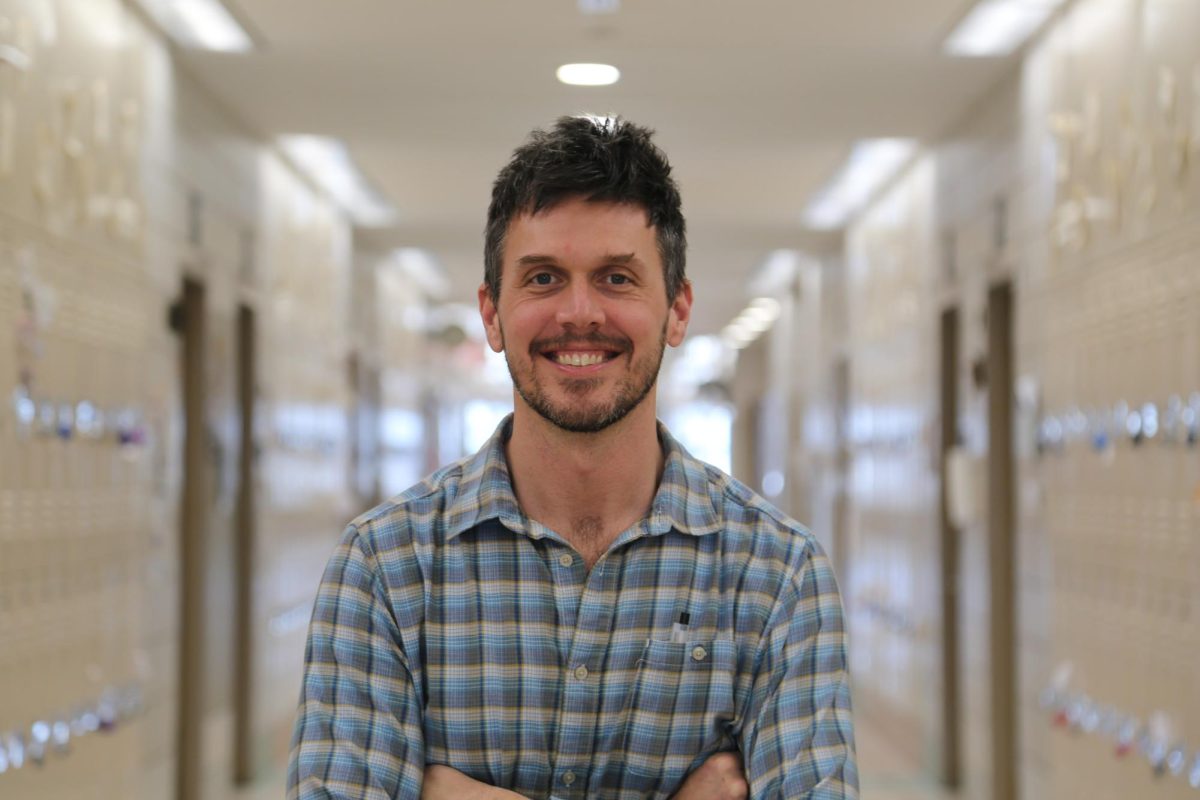
As another year of the Election Simulation begins at Townsend Harris, seniors who have represented candidates have started working with their respective campaigns to secure their nomination for presidency. Though these candidates may enjoy the commercials, radio interviews, and classroom visits that accompany the road to election, they must stay informed on the stance of the candidate they are representing; this involves not only the policies of the candidate, but also their personalities.
However, some candidates in the race are notorious for their real-life comments and remarks, which raises the question of whether or not it is justifiable for a senior candidate to repeat potentially offensive statements in order to be fully committed to their character.
According to the Election Simulation’s original guidelines, student candidates are responsible for “keeping it real” when it comes to portraying politicians. For this reason, the severity of punishments for crossing lines are not clearly defined. As coordinator of the Election Sim, Social Studies teacher Jaime Baranoff explained, “It depends on what they’re saying, how they’re saying it, sort of the intention behind it. If they’re saying it in a way that seems like they’re genuinely trying to portray the candidate, then it’s really hard to punish them.”
Junior Anil Singh added, “It would be difficult from a practical point of view for faculty to regulate candidates’ statements because different people have different standards on what is offensive. For instance, many students might find a pro-life candidate offensive to women, but many candidates in real life do hold that position so it wouldn’t make sense to ban students from representing that position in the simulation.”
Social Studies teacher and Election Sim facilitator Charlene Levi believes that the founders of the simulation “wanted to make sure that the discussion that was being had in the real world was being had here at Townsend,” and that if done properly, students “can handle the conversation that needs to be had in order to correct it.” Ms. Baranoff added that if students do repeat such offensive comments, “It’s really a good opportunity for discussion about the candidates and the elected officials in real life, and how they get elected, and how they get reelected.”
Anil defended the candor of these guidelines. “The purpose of the election simulation is for us to learn about real-life elections so we are prepared to make informed decisions once we become voters,” he said. “In real politics, candidates aren’t always polite or even decent people, and it’s important that our election simulation reflects that and not some idealized notion that all politicians are good people.”
Senior Justin Chen, who portrays Democratic candidate Pete Buttigieg, agrees with the Simulation guidelines but believes that certain lines should be drawn. “Censoring statements from candidates does not provide an accurate depiction of real-life events. If it happens in real life, then it should be allowed to be stimulated at THHS… However, the comments should be limited in the scope where the possibly offensive comments should solely be directed at the candidate and not the person playing them. I can criticize Kamala Harris as much as I can, but if I start attacking the student playing her, then the line should be drawn there,” he explained.
Some students believe that controversial comments should be rephrased or adjusted to fit a more school-appropriate setting. Senior Togay Atmaca, who plays President Donald Trump, said, “Our current president isn’t exactly the most subtle, so I think there are ways to simulate the crude things he says through allusion rather than blurting ‘s**thole countries’ and ‘grab her by the p***y’ for the sake of being ‘more like Trump.’ Although this is a simulation, playing the character shouldn’t be an excuse to say very crude things.”
Whether students choose to be completely true to their candidate’s characters or dilute his or her words, their actions are scrutinized nonetheless. “We’re all under the spotlight now— it hasn’t even been a week and I can hardly walk down the hallway without being asked for a handshake and to do the Trump voice,” Togay said. “Biden, Weld, Harris— this is how the underclassmen will remember us, even after the Election Simulation is over, and everything we do, whether we’re in character or not, will be linked to our campaigns.”
Students and faculty must also consider the changing political climate in America. Ms. Baranoff explained, “We’re in a time now where— an interesting time, I will say— that maybe we haven’t been in before, where some elected officials say things that are offensive… six or seven years ago we probably wouldn’t have been having this conversation, and here we are.”
The simulation can provide an opportunity for students to gauge what is and is not acceptable in politics. Ms. Baranoff said, “I think that’s part of the beauty of the Election Simulation, is that there’s hard issues and difficult conversations, and all of that in the end is for a good educational purpose.”



























